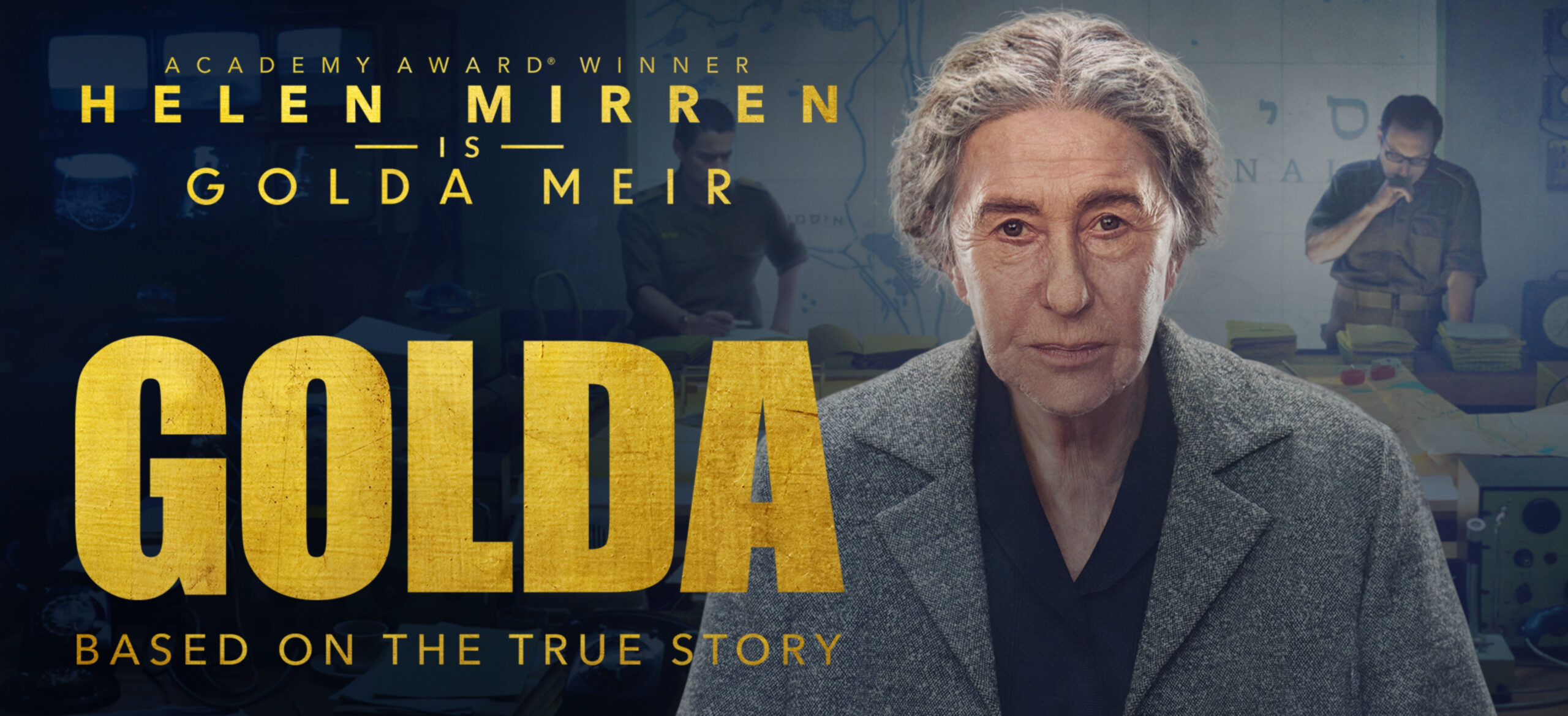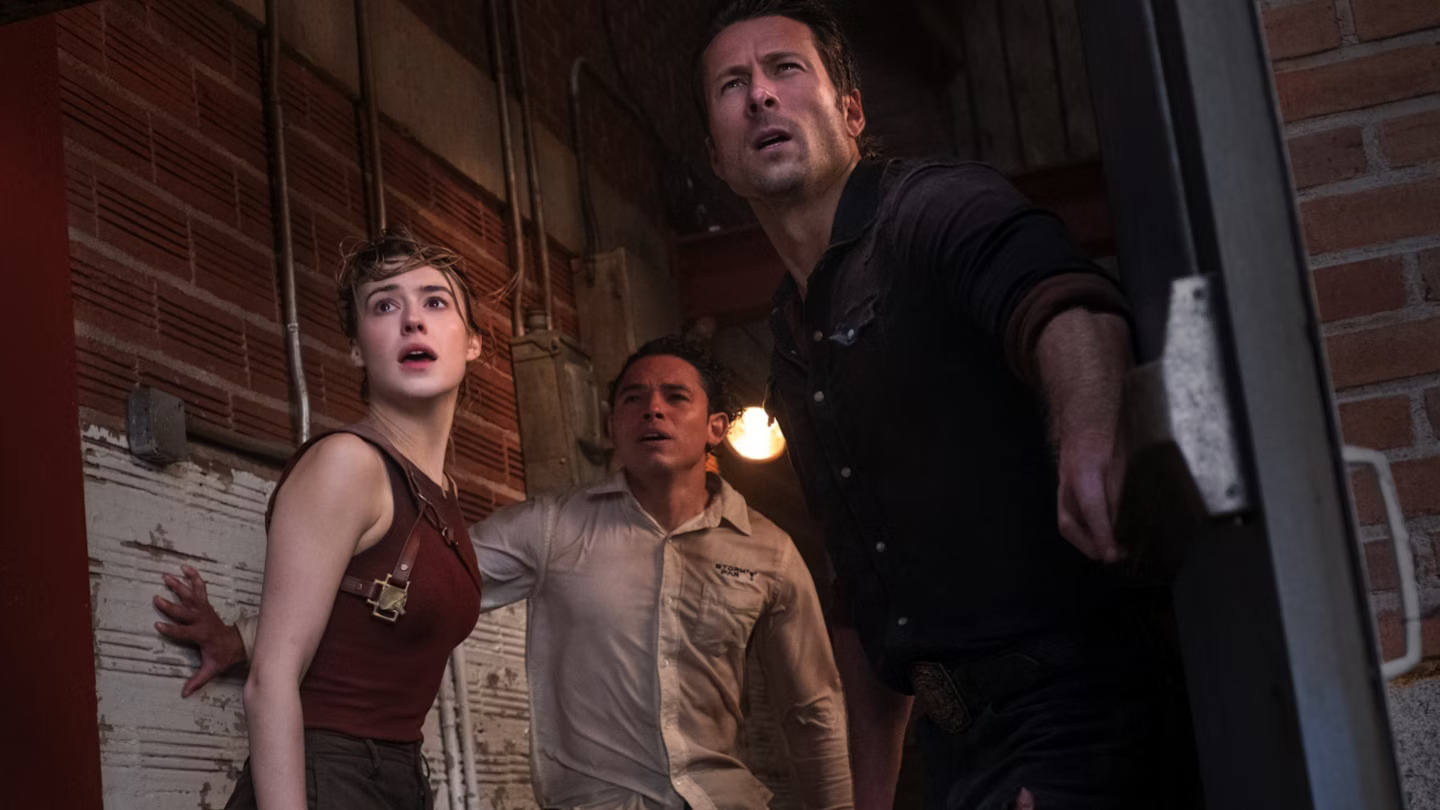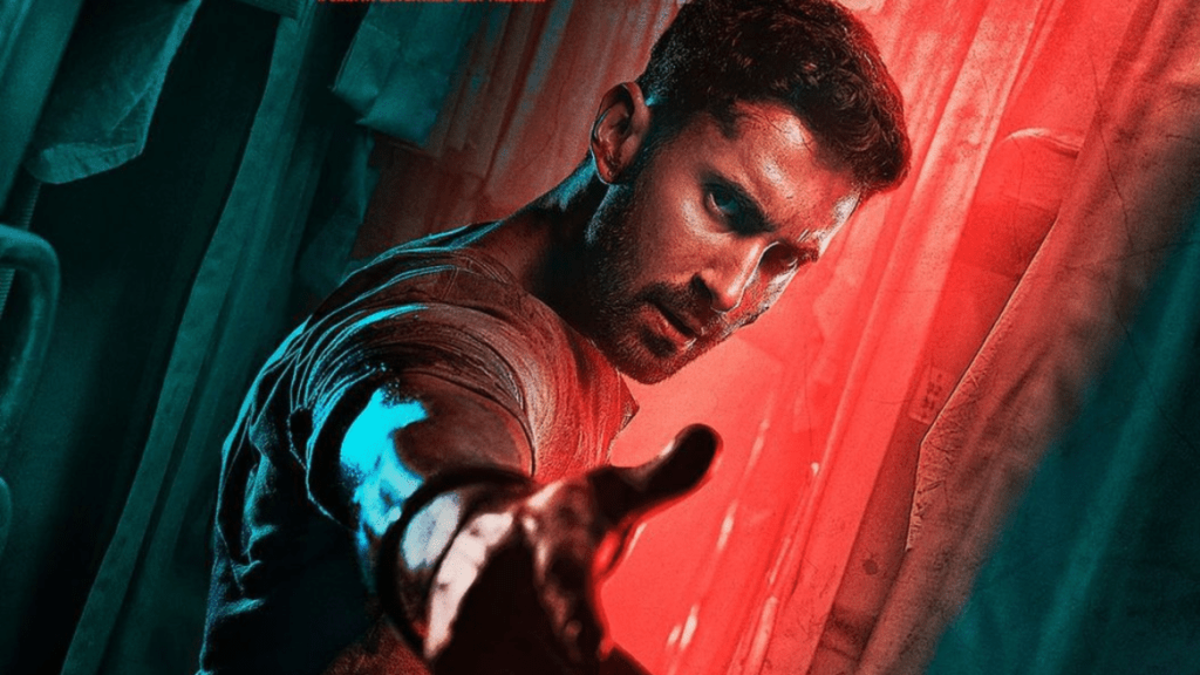*This piece was written during the 2023 WGA and SAG-AFTRA strikes. Without the labor of actors and writers currently on strike, the movie being covered here wouldn’t exist.*
The Illuminerdi reviews Golda.
As bad as they are for your health, cigarettes are the greatest movie prop. Able to punctuate an actor’s intonations or even control a scene’s tension, they’ve been widely used in many classic movies and have contributed to some of their lasting impact on our collective imagination. Let’s be honest: Would you have remembered *that* scene from Paul Verhoeven’s Basic Instinct were it not for Sharon Stone commanding the interrogation room with one cigarette? Sure, that moment is certainly unexpected, but would’ve we had the same reaction without the cancer sticks? Probably not…
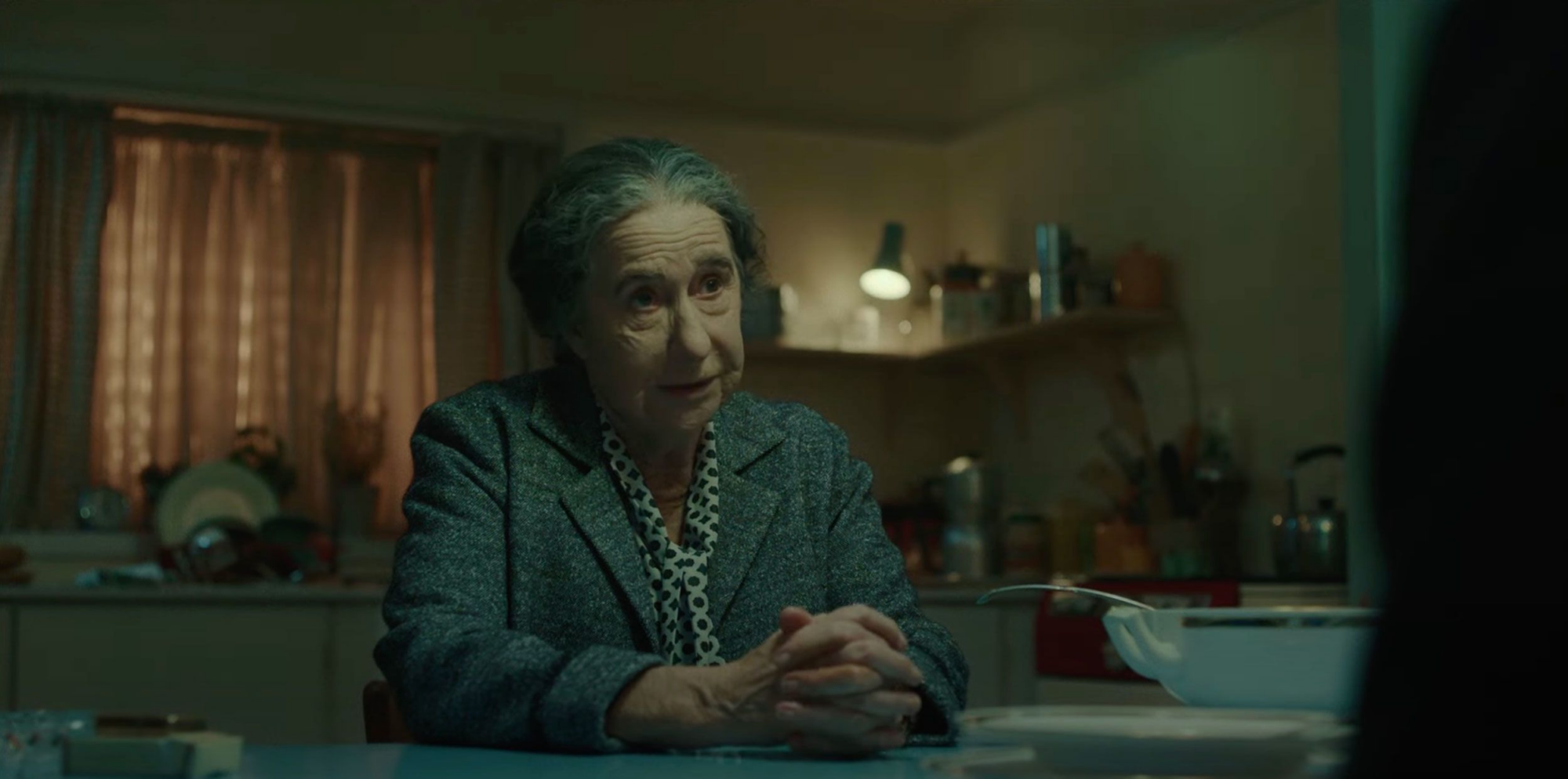
While movie studios have attempted to reduce smoking on screen over the years to discourage more impressionable viewers from picking up the habit, some period pieces still use them to reflect the time capsule the film references. Enter Guy Nattiv’s Golda, which sees Helen Mirren as former Israel Prime Minister Golda Meir during the 1973 Yom Kippur War.
Historians widely know that Golda was a heavy smoker, but Nattiv takes that fact to the extreme. In almost every scene, including on her deathbed, where she alternates between an oxygen mask and a cigarette puff, Golda is seen lighting up on every occasion. They even use the smoke she exhales as a visual metaphor for the ongoing war, where cities are shrouded in a cloud of smoke that slowly consumes its (unseen) citizens.
We get it: Golda was a smoker. However, Nattiv teeters the line between an acceptable depiction of smoking to a mise-en-scène of the cigarette that becomes utterly ridiculous, almost bordering on unintentional comedy, like Chloe Fineman parodying Lily Rose-Depp chain-smoking in The Idol.
Cigarettes in movies are a norm, but this felt oddly excessive and a major distraction from the meat of the film, which unfortunately doesn’t tell anything of interest about the geopolitical aspects of the war and its leader. It also purposefully erases many details about the war and Golda’s figure in Israel and abroad, making it one of the biggest jingoistic pieces of claptrap you’ll watch all year.
Nattiv Says Golda Meir is Controversial, Yet Never Paints Her as Such
Golda Meir is painted through Nattiv and writer Nicholas Martin’s script as a controversial figure from the film’s opening text. But it never gives a balanced perspective on the matter.

Instead, it lauds Golda as a hero and the one figure who ended the Yom Kippur War and led the signing of a peace treaty between Israel, the United States, and Egypt a few years after the war, during the Jimmy Carter administration. But it also blatantly omits her zionist past, which includes a history of well-documented racist comments against Palestinians and war crimes.
Of course, an Israeli filmmaker making a film about an Israeli PM would’ve never addressed these comments or given a distanced point of view of what happened because they wanted to make the audience believe in Golda’s heroism and resilience, where her leadership was truly tested.
But was her leadership actively tested? This is the film’s alleged thesis, and it wants to present this aspect of her life through a series of flashbacks that she narrates during a hearing that occurred a few months before her death. This immediately recalls Christopher Nolan’s Oppenheimer, but unlike that movie, Nattiv doesn’t have the guts to question Golda and examine the public figure through multiple facets of her life and the people who knew her.
He desperately tries to give secondary points of view through Golda’s assistant, Lou Kaddar (Camille Cottin), and U.S. Secretary of State Henry Kissinger (Liev Schreiber), but the two fail to make an impact at shaping the biopic into one that challenges audiences on how Israelis and Americans perceived her reign.
Some of the film’s more moving sequences are between Golda and Kaddar, particularly when her assistant needs to tend to her as she undergoes cancer treatment (while smoking, incredible). However, we learn very little about Kaddar, and the emotional attachment is minimal. It’s no surprise that Cottin gives the film’s best performance and consistently overshadows Mirren’s cloud-of-smoke portrayal of Golda (screaming Oscar bait), but the film would’ve been more impactful had she had a bigger presence than what we’re left with.
Golda Paints War Criminals as Saints and Ignores Crucial Elements of Her Reign

Unsurprisingly, if the film paints Golda as a saint, it’ll also portray Kissinger in the same light. Yes, why not have a scene where a chain-smoking zionist and a war criminal share a bowl of borscht while talking diplomacy? The one audience member with me ate it up, but I found it repugnant to see how Nattiv cares very little about objectivity. His ideologies and pre-conceived biases consistently shape how he paints Golda and Kissinger and purposefully omit their history of war crimes.
Of course, some will argue that the movie doesn’t need to delve into that because the film solely focuses on the Yom Kippur War, just like Oppenheimer wasn’t about the bombings of Hiroshima and Nagasaki but about the birth of the atomic bomb. However, when Golda directly says, “We are not zionists,” as a cheeky way for Nattiv to exonerate the Prime Minister’s past, how can we not call out the film for what it is?
RELATED: ‘Oppenheimer’ Review – Overwhelmingly White Thriller is An Incredible Cinematic Experience
There’s a line that Nattiv crosses in his examination of Golda that desecrates the whole thing. He’s not in search of “facts” (aside from her chain-smoking, which he exaggerates to the extreme) or at least multiplies points of view for a better portrait of who the character is (like Oppenheimer). Instead, he only cares about heroizing someone who doesn’t even deserve the cinema treatment after committing so many well-documented atrocities that the film purposefully ignores for its own agenda. That’s not an “honest” depiction of Golda, but pure jingoistic propaganda, glorifying Zionism and ignoring the suffering of Palestinians that Golda herself said don’t exist.
I went into the movie with an open mind, thinking I could see something that strived for honesty and wasn’t afraid to challenge audiences. However, I quickly saw how Nattiv and Martin wanted to pull the wool over my eyes and make me believe that Golda Meir was a hero when she was not. Helen Mirren deserves better than being a mouthpiece for Zionism. That isn’t worth getting an Oscar for, especially after smoking so many cigarettes.
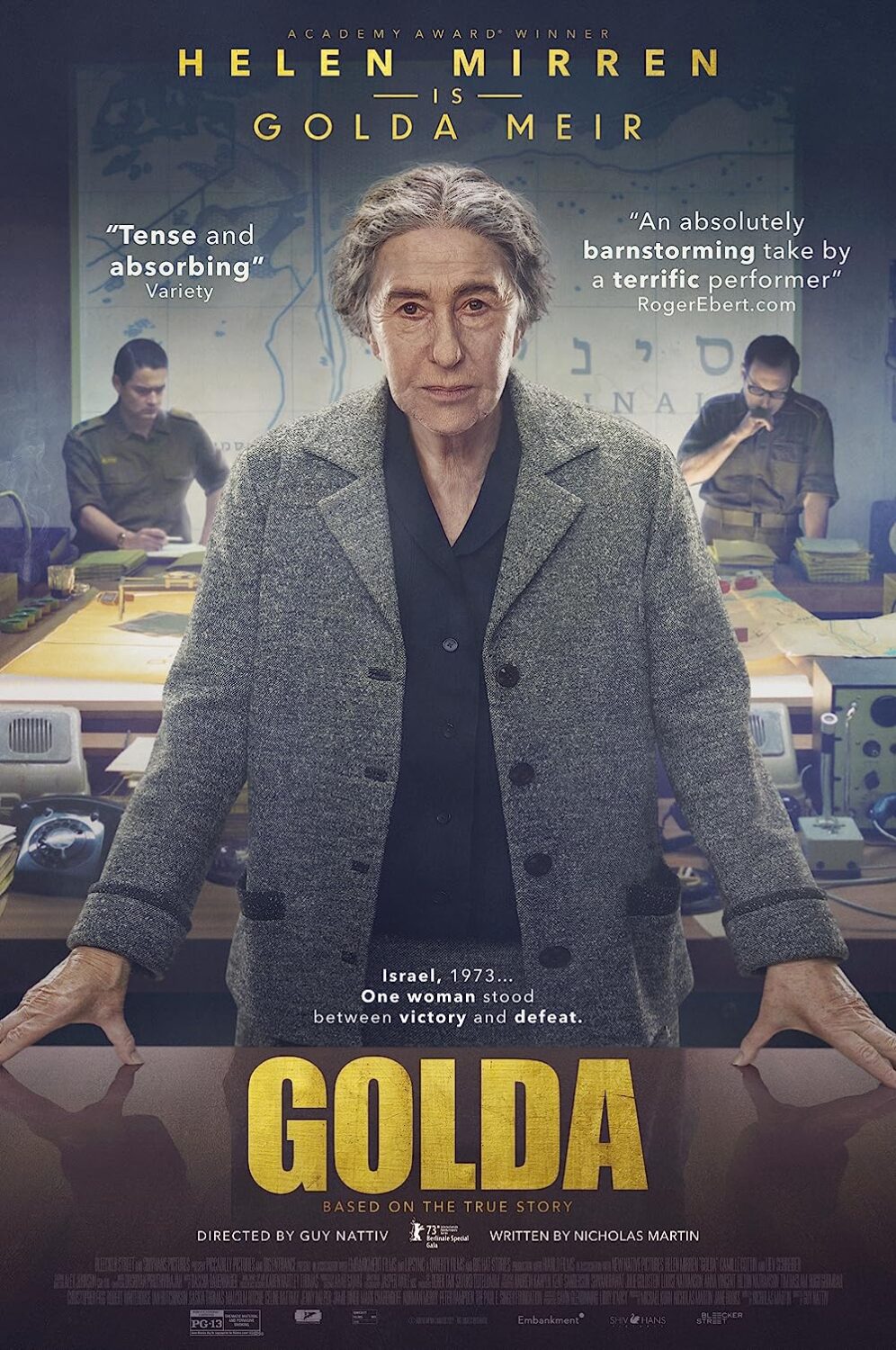
1/5
Golda is now playing in theaters everywhere. What did you think of the movie? What were your thoughts on Helen Mirren’s portrayal of Golda Meir? Let us know in the comments below and be sure to follow us on social media!
KEEP READING: ‘THE LAST VOYAGE OF THE DEMETER’ REVIEW – DRACULA MISSES THE JUGULAR


